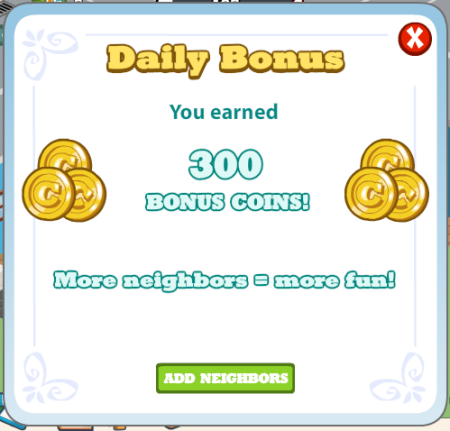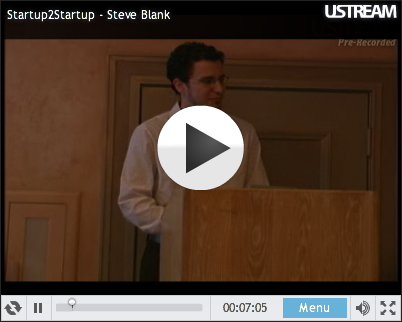Facebook Platform is under going major changes, which I believe are great for the smaller social game developers and everybody who makes quality applications. This great news, because Facebook is cracking down on questionable practices and spam.
Communication features change
On one front Facebook is revamping the communication mediums available for developers. This includes notifications going away, lot of stuff being moved to the inbox, the algorithmic stream change of last week and the new games dashboard to name a few. The best summary of these changes for any developer is the Facebook Platform roadmap.
I was originally concerned that Facebook would totally nerf application growth thru these changes, but after reading thru the changes, the functionality change isn’t really that drastic. The Stream will continue to be the main mass communication tool, and the Inbox based communication together with the new Dashboard are a great replacement for notifications. The game developers will go thru a round of iteration with these new features, but as we saw a year ago with the removal of profile boxes (then the most prominent application virality feature), the developers are quick to adapt.
The second change is much more important.
Facebook’s platform policies have gotten a lot stricter
Most of the blog coverage of yesterday’s Facebook Developer Garage focuses on the above functionality changes and is missing the real beef of what’s going on. The changes in the Facebook Platform Policy are much more important than the functionality changes.
Zynga is the master of viral distribution and many others copy their best practices (one notable exception being Playfish, who is quite reserved on their viral features). If I were to exaggerate, Facebook has taken a long hard look at what Zynga and its copycats do and decided to forbid many of their most successful practices:

Apps can no longer popup “Publish to stream” forms. This is done currently extensively at e.g. level ups, achievements. Now stream publishing can only be prompted after a player specifically clicks on such button.

Apps can no longer mislead players by making the default button e.g. a invite friends function. I can’t count how many times I’ve clicked on the friendly looking green button in Cafe World’s login report screen only to end up at the invite friends screen when I just wanted to proceed to the game. This action button now must have a “skip” button next to it in a similar size & style.

Apps can no longer gate content or reward players based on the number of friends playing. Mafia Wars and its clones are completely built upon this mechanic with mob size based powerups and limitations built-in. It will be very painful to change these game mechanics as it means that every single players’ in-game standing & resources will change.

Apps can no longer incentivize players to e.g. invite or message friends or publish to stream. This has been pretty much the rule already, but Facebook has been somewhat lax in enforcing it. It remains to be seen if this will be used against features such as “Share the wealth” mechanic popularized by Zynga in FarmVille to incentivize posting to the stream (clicking on Get the Special bonus link shown above gives a bonus to you as well as to the player who posted to the stream).
There are more e.g. a rule that forbids Apps from no longer publishing Stream stories that invite a player to a game or include calls to action “e.g. beat her score”.
If Facebook is really serious about enforcing these policies, this will mean a tectonic shift on how games can grow on the platform. Will Facebook enforce these rules against Zynga, who is apparently contributing $50 million to Facebook’s revenues thru buying Facebook ads?
I’m sure there will be in a grace period during which developers are expected to change their practices and games. How long that period is, is still unclear. Facebook representatives themselves didn’t go into much detail about the policy changes at yesterday’s event.
To be clear: Zynga has operated according to the existing rules of the platform and has been wildly successful. It takes a lot more than just virality to become the TOP1 company on Facebook. The above is not to dig on Zynga – it is just that many of their most copied approaches are being invalidated. And to be honest, if the rules wouldn’t have been changed, we’d most likely would have also adapted many of Zynga’s approaches – that’s how successful they’ve been.
Why is this great news for smaller developers?
These are great changes for smaller developers because
- virality is compounded growth: with a high user base, the forbidden practices were useful to getting higher absolute number of new users into those apps. If these new rules are enforced, the bigger apps’ growth will likely slow down and leave room for smaller players
- game quality matters: with less spam it will take better quality games to succeed. This should also benefit Playfish.
- originality matters: it will be a bit harder to copy a new original game and grow it rapidly. However, the big players have the marketing spend to boost any new game they want
- players will be more in charge: with less spam, new players are likely to react more positively to friend’s inviting them to games
- discoverability improves: the games dashboard should help also new apps surface
- the playing field is more even – if just for a while: everybody needs to find the new best practices
It is good to note that this is just the roadmap for the next few months for the Facebook Platform. There will definitely more changes ahead.
More coverage about Facebook Platform changes
- Inside Facebook’s summary, complete run down of changes and screenshot gallery
- Venturebeat’s summary and liveblog
- TechCrunch’s liveblog
- ReadWriteWeb’s brief summary
- Official announcement from Facebook
- Facebook Platform Roadmap (the best technical & game design resource)
- Facebook’s updated Platform policies
- Video recording of Facebook developer garage









